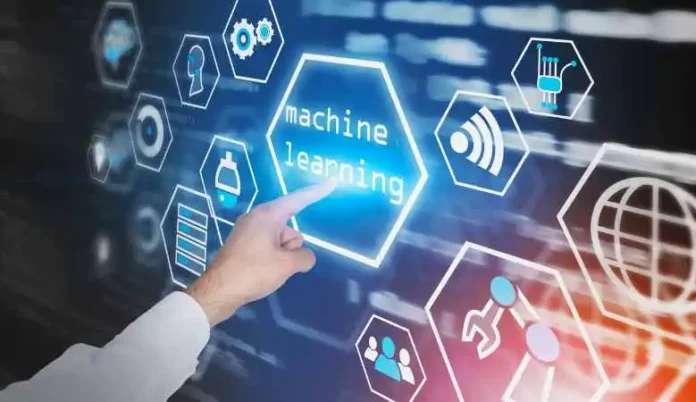Machine Learning is a branch of artificial intelligence that allows machines to learn from data without being explicitly programmed.
This guide explores how it works, its practical applications, its impact on various sectors, and its growing importance in our technological world.
What is Machine Learning?
Machine learning is a branch of artificial intelligence that equips computers to learn from data without requiring explicit programming. This technology allows machines to improve their performance and prediction capabilities over time simply by processing and analyzing large amounts of data.
How machine learning works
Imagine a computer that teaches itself to recognize pictures of cats or predict fluctuations in the stock market. This is made possible by machine learning algorithms, which analyze incoming data and adjust their internal models for better performance without direct human intervention. It’s a machine training itself through its experiences, similar to how humans learn from their experiences.
Practical applications of Machine Learning
The applications of Machine Learning are vast and impact several aspects of daily life and business. Here are some examples :
- Image recognition: Automatic identification of objects, people, scenes or activities in images and videos.
- Natural language processing allows machines to understand and generate human language in applications like chatbots or machine translation systems.
- Prediction: Using historical data to predict future events, such as fraud risk or market trends.
- Recommendation: Suggest products, movies, or music based on user preferences and past behaviour.
Machine Learning is revolutionizing many sectors, offering innovative and effective solutions. For example, in the health field, it makes it possible to predict diseases based on patterns not detectable by humans. It helps model complex economic scenarios in the financial sector for more informed decision-making.
Why is Machine Learning important?
The importance of Machine Learning lies in its ability to process and analyze massive amounts of data faster and more accurately than humans. This opens doors to meaningful innovation in almost every area imaginable, from healthcare to education to transportation and beyond.
How is Machine Learning used in daily life?
Machine learning is used in many aspects of daily life, including recommendation systems like those used by Netflix or Amazon, intelligent personal assistants like Siri and Alexa, and even navigation systems like Google Maps.
Can Machine Learning replace human jobs?
Although machine learning can automate specific tasks, it is generally considered a tool that will increase human productivity rather than completely replace it. Jobs that require creativity, empathy and human judgment are less likely to be affected.
Also Read: What Can Artificial Intelligence Do?










![Imginn Instagram Story and Photos Anonymous Viewer Tool [Free] Imginn](https://www.iblogtech.com/wp-content/uploads/2023/09/imginn-150x150.webp)



